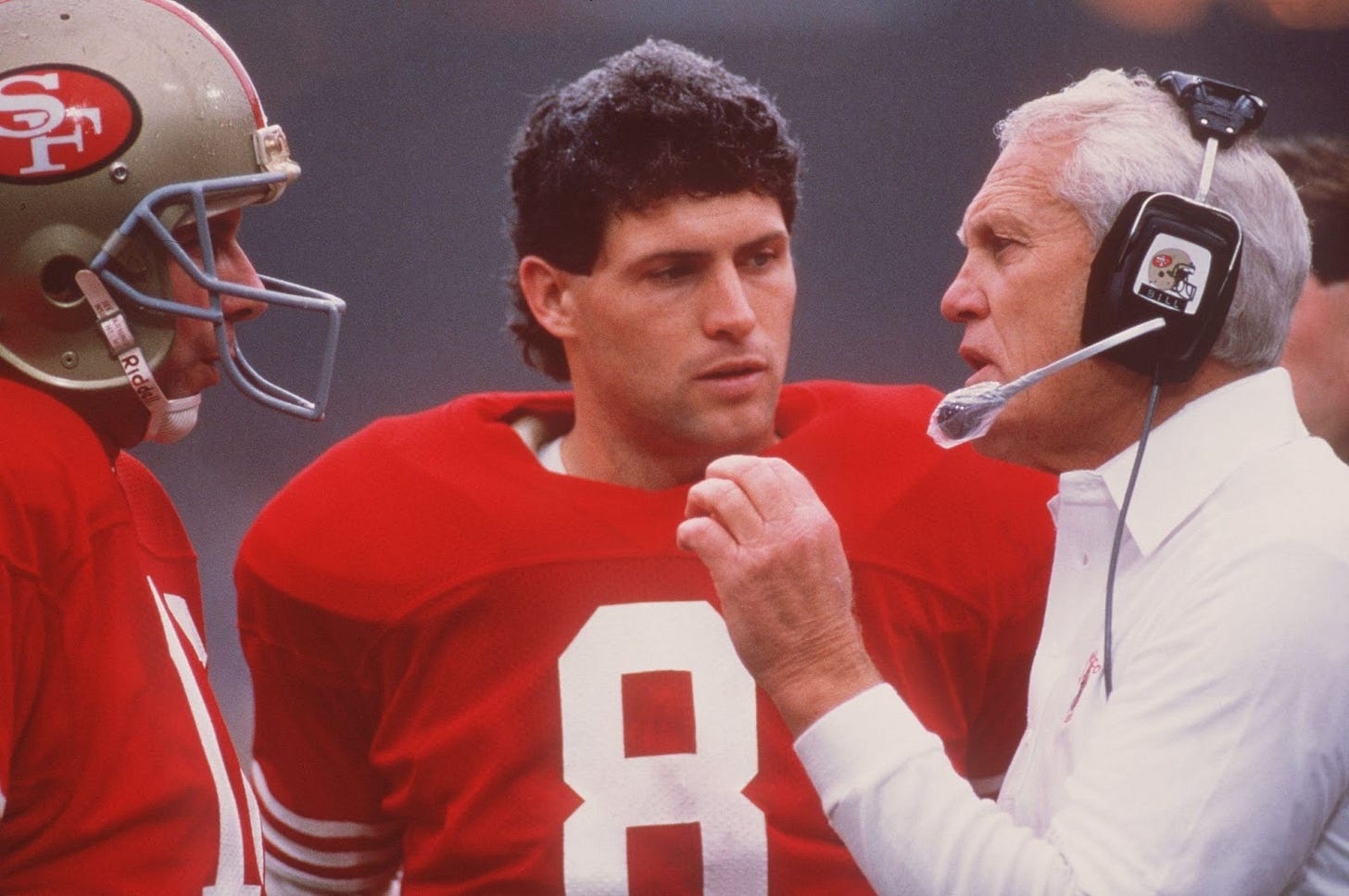Scripted Selling
"Paul, what do you think about scripting calls?" A founder asked me this past Thursday in a work session I was hosting for founders at Village Global's gorgeous event nestled in San Francisco's Presidio.
This is one of my favorite questions, in part because my answer is well-rehearsed. But also because it's an opportunity to change a person's mind (which is the essence of coaching work).
The reason the question is asked often is that a lot of folks feel like having a script will limit their ability to sound natural. To ad-lib. They might even sound robotic, like junior SDRs reading off their scripts when they cold call. Or like customer support reps from a far away land.
To which I'll respond, "Do you think Denzel sounds robotic? How about Meryl Streep? Helen Mirren? De Niro? That's right. These marquee thespians have internalized their scripts so well that they flow out of them like real speech. Fully owning that script gives them the freedom to ad-lib. To try on different interpretations. To even play with their role."
James Clear, the author of best-selling Atomic Habits is known for saying, “You do not rise to the level of your goals, you fall to the level of your systems.” This is no different. In selling, I'm all for creativity and spontaneity. Even improvisation. But scripts act as a starting point. You know which marks to hit. If you happen to be a great performer, you can ad-lib all you want, as long as it sells.
My formula for internalizing scripts? Recite the script to yourself out loud – preferably in front of a mirror – 10 times before sleep. In a matter of 7 to 10 days, that script is internalized, and you sound as natural as Denzel in Training Day.
Now you might ask, “Paul, I'm a busy startup operator. I want to flesh out these scripts, but that's going to take a ton of time. Where should I start?”
Great question.
Back in my days at Whitetuffle, I developed a keen felt sense of when I felt wobbly or anxious about a spot in the customer conversation. It felt like unease. And I tuned into it intently. Any time I felt this sensation, I came to realize that it was time to put pen to paper. If I was able to articulate things properly and then internalize them, I'd be more than capable of smoothly delivering them under the bright lights of a sales conversation. I now had a valuable crutch. One I leaned on consistently. And one I now recommend my clients leverage as well. When putting together scripts, start with the parts you feel less comfortable with. And build on those. Before you know it, you'll have everything in order, and all of your protagonists will know exactly what they should be doing.
The legendary football coach Bill Walsh pioneered scripting the first 10-15 plays of each half when coaching the 49ers back in the 1980s. The Genius – as he was rightly called – would have the first few offensive series totally prepped, coming out for each half. And based on what he saw from opposing defenses, he would adapt his live play-calling. It became a widely adopted practice in the NFL shortly thereafter. Much in the same way, it’s critical to have something to test with your audience. Without a script, you're not even sure what you're testing. You've got nothing to hold onto. It's a great starting point. Nothing should be etched in stone. Particularly in the early stages of building our a sales process. You can always adapt and call different plays based on what you see on the field.
Take this example. You've got a brand new demo call script. After taking it to market with a half a dozen opportunities, we notice that folks are not all enthused about jumping on the next call in your sales process: a proposal review call. In looking at your game film together, we also realize that the feature you were leading the demo with was turning off about half of your qualified opportunities. They didn't seem to grok it. Our attempts to fix this have us pushing the feature further back into your demo. And when demoing it, we make sure you tie this feature back to value for the prospect. Things finally click with most people. Instead of having half of your opportunities resist moving past the demo, you're now converting northward of 70% to proposal review calls.
We shouldn't end our episode without saying that a script ensures things are done in a uniform fashion. You're able to describe a path to revenue for the reps you'll hire. Once they're hired, you'll have a method that'll increase their chances of performing. As you onboard them that first week, you might hear yourself saying, as you point to your newly minted playbook, “Hey, of course, you can do it your way. But if you don't end up hitting your number, you're going to have to do it my way. And my way's in here.”





